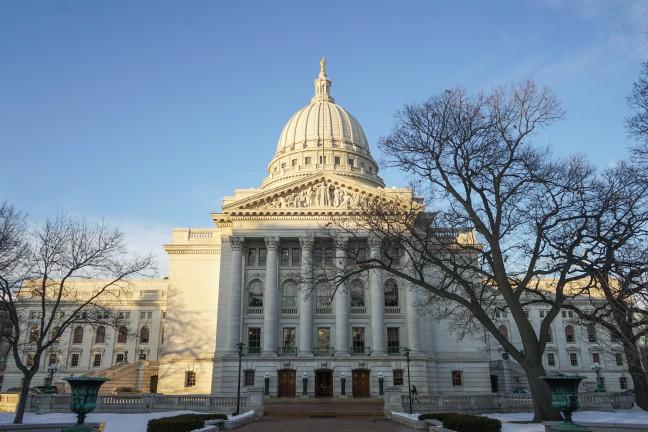Wisconsin’s congressional delegates voted on a variety of key issues in recent weeks including cabinet nominations, Rep. Majorie Taylor Greene’s position in her congressional committees, minimum wage and abolishing the filibuster.
Members of Wisconsin’s congressional delegation hoped Inauguration Day would mark a new time of unity and collaboration between parties, according to WisPolitics.
Wisconsin Republicans and Democrats alike approved two of President Biden’s cabinet nominations, according to The Wisconsin State Journal.
Wisconsin State Legislature sees record number of female lawmakers
Both Republican Sen. Ron Johnson and Democratic Sen. Tammy Baldwin of Wisconsin voted to confirm Avril Haines as Director of National Intelligence. Haines will become the first woman to serve as director of national intelligence, according to the Baltimore Sun.
Baldwin and Johnson also both voted to confirm Pete Buttigieg as Secretary of Transportation. Buttigieg will be the first Senate-confirmed LGBTQ Cabinet secretary, according to USA Today.
University of Wisconsin Professor Dennis Dresang said despite a strong bipartisan consensus on President Biden’s nominations, Johnson and Baldwin are symbolic of Wisconsin’s deep political divisions.
“Ron Johnson has been a consistent and unapologetic spokesperson for Donald Trump and the extreme right-wing of the Republican Party,” Dresang said. “Tammy Baldwin has been a leader within the Democratic Party opposing those forces and supporting progressive alternatives.”
Former President Trump’s impeachment trial is also causing divisions in the Senate.
Wisconsin GOP votes to repeal statewide mask mandate, Gov. Evers signs new Executive Order
According to Newsweek, Sen. Johnson implied the Senate may not confirm President Biden’s cabinet nominees if Democrats continue with an impeachment trial for the former President.
Congressional Democrats are also attempting to get rid of the filibuster.
According to member of the UW Young Democratic Socialists of America Andrew Horvat, the filibuster must go.
“We support abolishing the filibuster as it is one of many barriers to real democracy and allows small groups of legislators to block legislation,” Horvat said.
According to the Washington Post, the efforts of Democrats to ‘abolish the filibuster’ were set back only thanks to the opposition from Sen. Joe Manchin of West Virginia and Sen. Kyrsten Sinema of Arizona.
The filibuster allows a minority of Senators to block pieces of legislation. Democrats claim Republicans abused the power of the filibuster to block important pieces of legislation, according to The Guardian.
Wisconsin Republicans resume efforts to end state mask mandate
UW Professor David Canon said there is almost no chance the filibuster will be eliminated because of a lack of consensus among Democrats.
In a New York Times opinion piece by Sen. Mitch McConnell, getting rid of the filibuster would backfire on Democrats in the future and the consequence will be lost a key safeguard of American government.
Member of UW’s College Democrats organization Allyson Fergot said even if it is not abolished, the filibuster needs to be revised.
“I’d like to see the filibuster debated and at least the rules around it changed so it no longer is used to shut down popular policies,” Fergot said.
Other issues have been fiercely debated by Democrats and Republicans in Congress.
Feb. 4, the House of Representatives voted to remove Rep. Marjorie Taylor Greene from her committee assignments for supporting conspiracy theories and appearing to make violent threats against Democrats, according to ABC News.
The vote was heavily contested along party lines, with only 11 Republicans voting to remove Greene.
According to Fergot, Greene’s removal was the right move because Greene inspired violence at the capitol.
“Her role in our government should be limited because it seems she cares more about spreading disinformation than actually helping the American people,” Fergot said. “She poses a risk to our democracy, so I think her removal is justified.”
Online register to close, absentee ballot drop boxes open for February primary
Congress is also moving ahead with President Biden’s $1.9 trillion COVID-19 stimulus which includes a $15 minimum wage, despite unanimous Republican opposition, according to the New York Times.
Some Democrats, including Manchin, opposed President Biden’s push to raise the minimum wage to $15. Manchin said he would amend raising the wage to a more conservative $11.
Despite these political divisions, President Biden’s inaugural address emphasized his goal to bridge the gap between the parties over the next four years.
“America has been tested and we have come out stronger for it,” Biden said. “…We will repair our alliances and engage with the world once again.”














